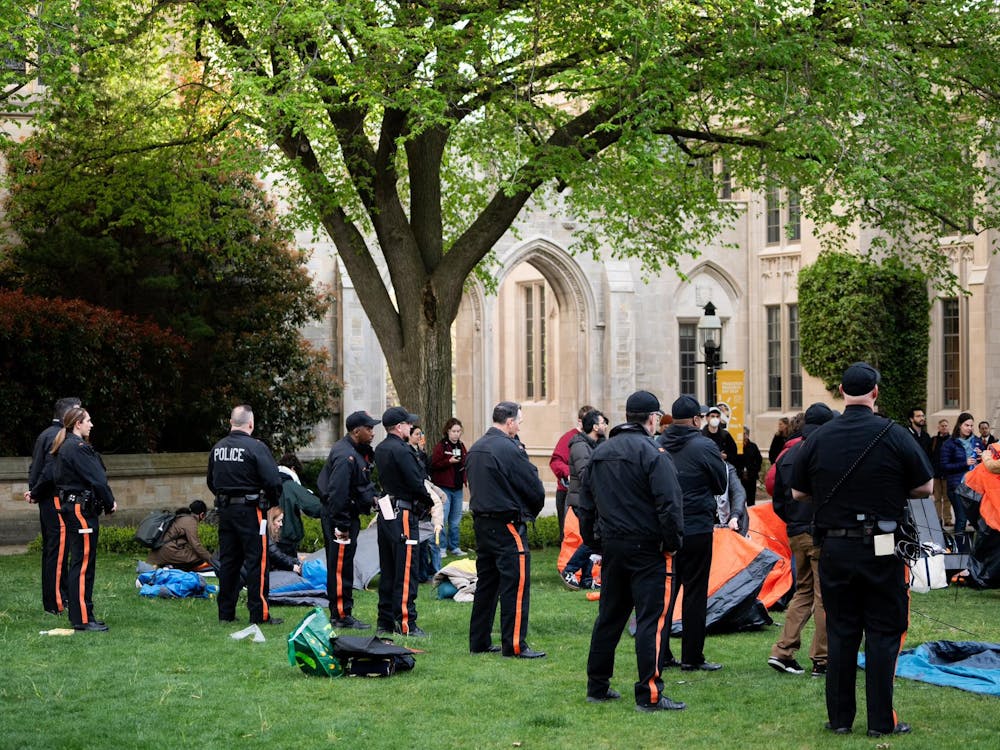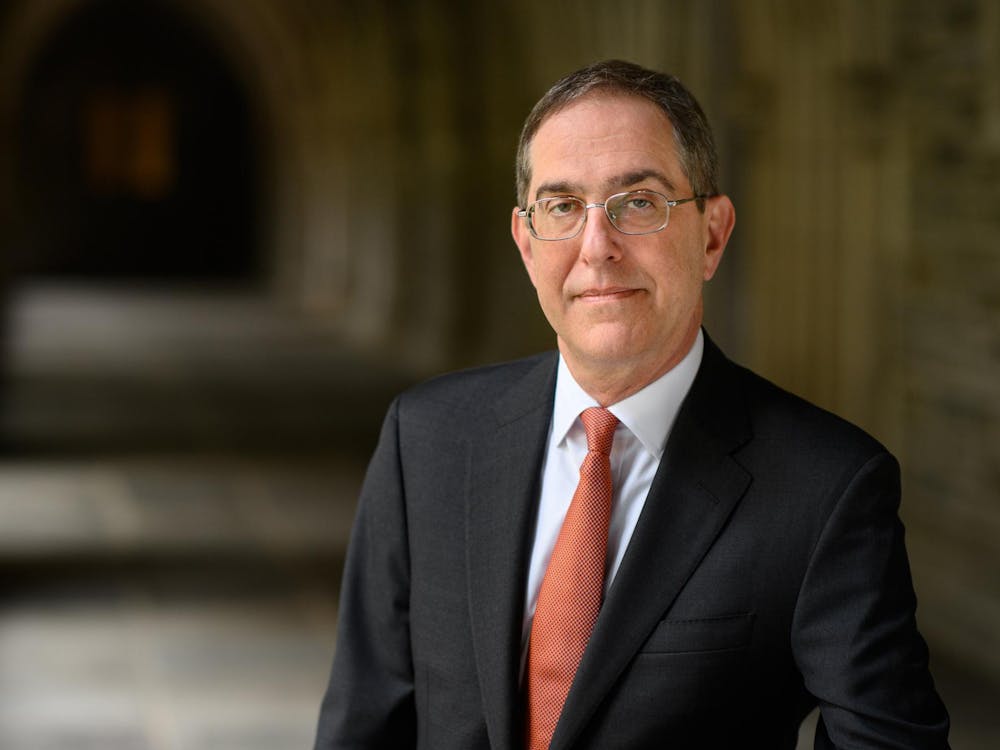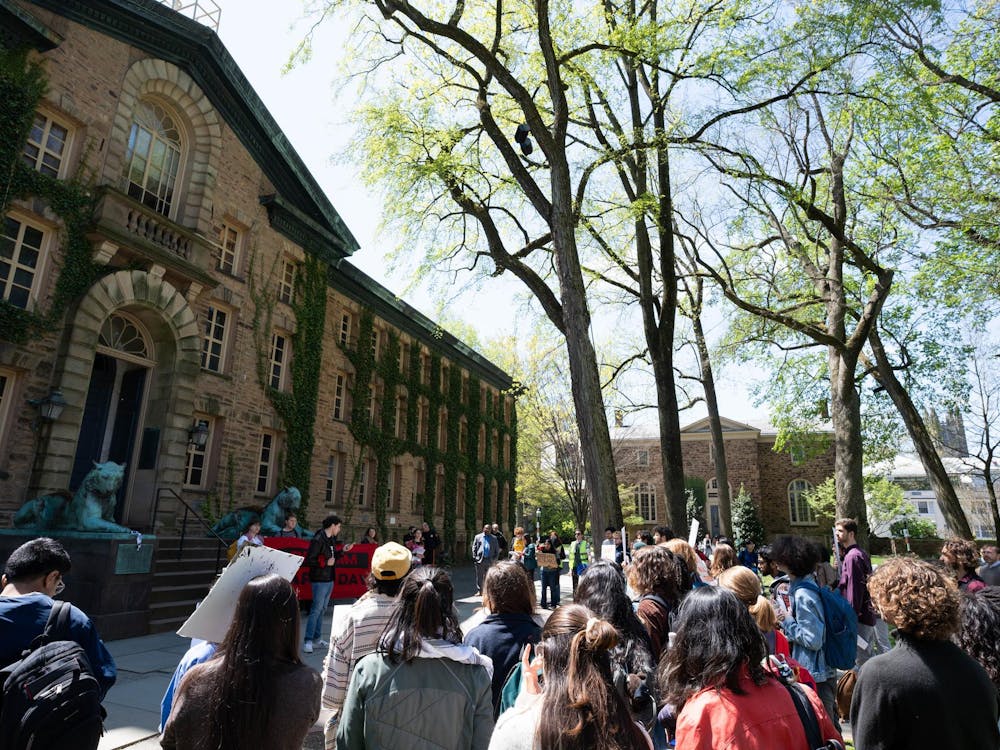You would think the author of an essay titled “Don’t Send Your Kids to the Ivy League” would get a chilly reception in a room of Princeton students. Many of us, however, found ourselves applauding Bill Deresiewicz’s arguments last week as he and Joshua Rothman discussed the book from which the essay is excerpted, “Excellent Sheep: The Miseducation of the American Elite and the Way to a Meaningful Life.”
On Monday, Cameron Langforddeftly defendedPrinceton from the charge in the first part of the book’s long-winded subtitle — and the University is indeed working to salvage a liberal arts education from the trends Deresiewicz notes. But, as Rothman argued both in aresponseto Deresiewicz’s essay and at the panel, it is nearly impossible for a college to help us with that second part — the meaningful life. How can we, the products of years of frenzied preparation for college, hope to suddenly find meaning once inside the FitzRandolph Gate?
We are universally driven, universally busy and universally good at jumping through hoops. What we lack, Deresiewicz argues, is something that is systematically beaten out of us in the obstacle course to college. We cannot take risks or make any choices that do not bring us closer to the goals we have allowed to be defined for us.
The damage to creativity and introspection is crippling. The need to make an experience “count” shades everything. Readings can be interesting, but it’s hard to immerse oneself in their intricacies and take tangents while keeping up with the syllabus. Peers, professors and alumni can be invaluable friends and fonts of wisdom — but all interaction is, to some extent, networking. For me, every weekend trip, every protest, every introspection gets crammed into an 800-word ‘Prince’ column. All of life is focused on moving toward one of a handful of careers — chosen mainly for their qualities as low-risk moves to the next level — and none is focused on finding meaning.
Oh, we can rationalize our timid choices. The fledgling doctor wants to save lives, or at least that’s what his parents always told him. Cameron applies to consulting jobs merely as a temporary hiatus from “saving the world.” But if we were really choosing freely, would more than half of us, as Deresiewicz points out, end up on one of four paths — finance, consulting, law and medicine? MCATs, LSATs, GPA cutoffs and internships represent familiar gates to familiar-looking prestigious paths. That Princeton’s “alternative” career fairs are simply defined as excluding finance and consulting shows we have lost perspective.
There are exceptions: those who have rejected the hoops. I have a friend who, rather than joining a campus music group to exercise and justify his passion for drumming and music, brought friends together into his own group to do what he wants. When I asked if he felt Princeton pressing him toward an elite definition of success, he was indignant. Somewhere during freshman fall (perhaps under the influence of MAT 215: Honors Analysis), he had decided to stop caring, in the least nihilistic way possible. “I don’t know where I want to be in five years, even two!” he told me. For him, far less than any plan or goal is the feeling that he gets “knowing what [he’s] doing is right,” that he’s spreading his art and ideas.
More hopeful than the outliers, though, is that the vast majority of us moving through these hoops feel that something is missing. An operations research and financial engineering major friend told me that she had noticed her personal definition of success change. A job allowing her to support and spend time with her family is no longer enough — she has taken on her peers’ desire for a fast-paced money-and-numbers job. That this worries her shows that all is not lost. We are, despite Deresiewicz’s fears, capable of and willing to question ourselves.
For now, then, I’m looking carefully at the hoops I choose. There is nothing wrong with moving toward conventional goals, as long as we do so for the right reasons. For me, inertia and praise were the wrong reasons to keep writing for the ‘Prince.’ Even before Deresiewicz’s talk, I had informed my editor I would take a temporary leave from these pages. I want to live my life without my opinion-columnist blinders on, ever stuffing my life into 800 words. More than that, I want time to think — not as a student or as a columnist, but as a human soul. I have also decided to take a semester abroad this spring. With luck, Europe will do for me what the University has stopped doing — allow me to take stock of my commitments and beliefs.
I don’t know where I’m going from here. I still like writing, and I still like solving problems. Moreover, I maintain my drive to know. I’ll probably still go to grad school. But that decision — and any decision I make during or after — will be made deliberately. We must live mindfully and refuse to let inertia and expectations pull us through life, or we can hardly be said to have lived at all.
Bennett McIntosh is achemistry major from Littleton, Colo. He can be reached at bam2@princeton.edu.









